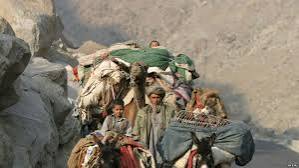Nomads in the north of the country complain about access to education

Nomads in northern Afghanistan complain of lack of access to education as one of their biggest problems. This group, which traditionally leads a nomadic life, has been deprived of proper educational services due to special living conditions and infrastructure problems. Here are some of the reasons and challenges related to nomads’ lack of access to education in the north of the country:
-
nomadic lifestyle
The nomadic life of the nomads, who are constantly moving, has limited the possibility of establishing permanent schools and providing suitable educational facilities. Nomadic children cannot attend regular schools due to these displacements, and this issue has negatively affected their education. -
Lack of educational infrastructure
The remote and mountainous regions of northern Afghanistan, where many nomads live, are often deprived of educational infrastructure. The lack of schools, teachers and educational equipment in these areas is one of the main obstacles to the access of nomadic children to education. -
Lack of financial means
Many nomadic families struggle with poverty and cannot afford to send their children to schools or buy educational materials. In addition, many of these families, due to poverty, prefer their children to help with daily family work instead of studying. -
Government’s lack of attention to the needs of the nomads
Although governments and international organizations have tried to create educational programs for the nomads in recent years, these programs have not been sufficient and have not fully covered their special needs. The lack of appropriate policies to provide mobile education that is adaptable to the living conditions of the nomads is one of the reasons for the continuation of this problem.

-
Cultural and social challenges
In some nomadic communities, especially in rural areas, the importance of education for children, especially girls, is still not fully understood. These cultural and social beliefs can prevent children from being sent to schools. -
Lack of special educational programs for nomads
Due to their specific lifestyle, nomads need mobile and flexible educational programs that can be adapted to their movements. However, existing government programs have been less able to effectively meet these needs. -
Impact of the security situation
Unstable security conditions in some northern regions of the country, especially in areas where the Taliban or other groups are active, have caused the closure of schools and children’s lack of access to education. The nomads, who often live in remote areas, have been severely affected by these conditions.
Conclusion
The problems of nomads in accessing education is one of the biggest social problems in Afghanistan. Without proper education, future generations of nomads will be deprived of economic and social opportunities. Creating mobile educational programs suitable for the lifestyle of nomads, developing educational infrastructure in remote areas, and trying to remove cultural barriers are among the measures that can help improve their educational situation.
